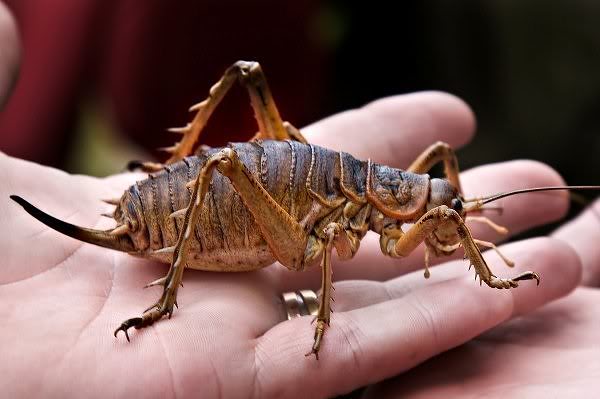Extinction News
Global threat to agriculture from invasive species
Abstract
Invasive species present significant threats to global agriculture, although how the magnitude and distribution of the threats vary between countries and regions remains unclear. Here, we present an analysis of almost 1,300 known invasive insect pests and pathogens, calculating the total potential cost of these species invading each of 124 countries of the world, as well as determining which countries present the greatest threat to the rest of the world given their trading partners and incumbent pool of invasive species. We find that countries vary in terms of potential threat from invasive species and also their role as potential sources, with apparently similar countries sometimes varying markedly depending on specifics of agricultural commodities and trade patterns. Overall, the biggest agricultural producers (China and the United States) could experience the greatest absolute cost from further species invasions. However, developing countries, in particular, Sub-Saharan African countries, appear most vulnerable in relative terms. Furthermore, China and the United States represent the greatest potential sources of invasive species for the rest of the world. The analysis reveals considerable scope for ongoing redistribution of known invasive pests and highlights the need for international cooperation to slow their spread.

Sir David Attenborough speaks about population
The dangers facing the Earth’s ecosystems are well known and the subject of great concern at all levels. Climate change is high on the list. But the underlying and associated cause is population growth.
South China Sea: Can US prevent a war on Australia's door step? Can it stop one in Europe?
Two events in particular have driven this development, separate but subtly interlinked. On the Korean peninsula, the deployment of a new South Korean missile defence system and imposition of new US sanctions on the north has nudged tensions higher. Now, an international court decision on China's claims in the South China Sea could further amplify already growing posturing over disputed maritime boundaries.
Hague Tribunal finds China has no 'historic title'
In a judgement that is even tougher on Beijing than anticipated, the Permanent Court of Arbitration in The Hague has rebuked China on everything from its interference in its smaller neighbour's fishing to the environmental devastation wrought by its large-scale construction on fragile coral reefs. Crucially the judges also found that the Beijing's artificial islands do not generate an extended maritime zone because the natural features could not sustain human habitation.
What’s at stake in China’s claims to the South China Sea?

